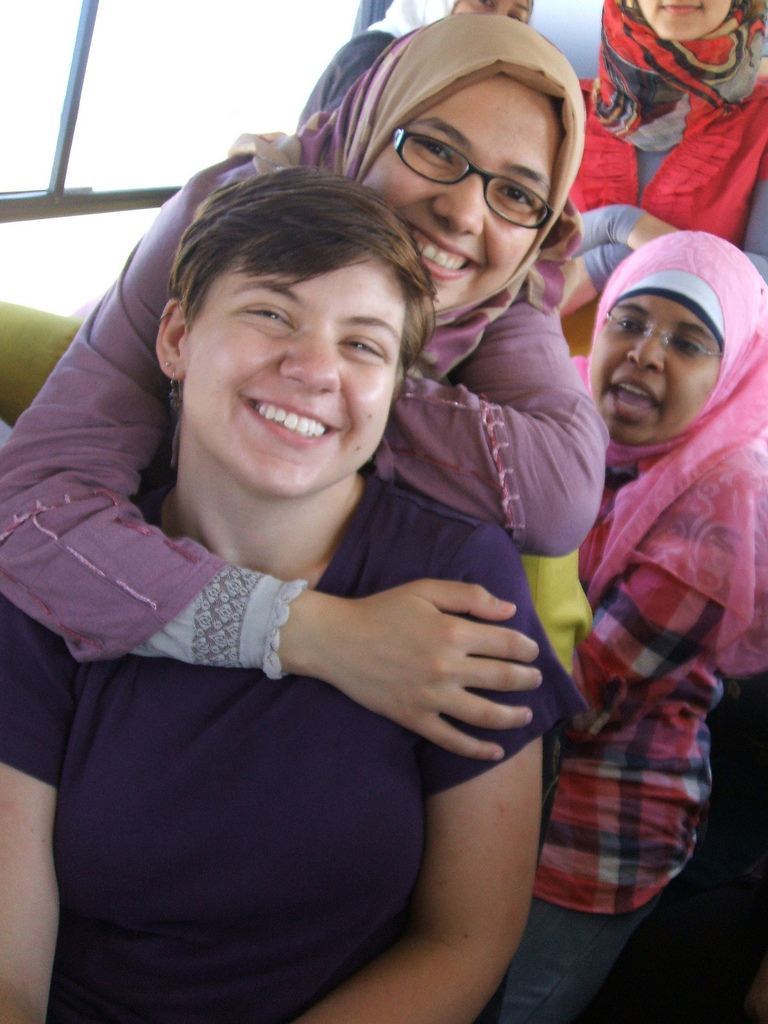Egypt, as you might have noticed, has some serious problems that make life there hard – poverty, corruption, you name it. Religious tensions are one issue that I found impossible to ignore during my time there for SST. For starters, faith is very apparent visually: Christians typically have a small green cross tattoo on their hands or wrists and women would never wear a hijab (the veil); Muslims are more likely to dress conservatively, in traditional robes for both men and women, and women almost always covering all but their face and hands (sometimes they cover even those). Even beards are a sign of more conservative Islam, and thus Christian men are almost always clean-shaven. How you dress is an integral part of how you show your faith and heritage to the society around you, which in turn affects how others treat you. Dressing more conservatively on our part (us women especially) didn’t mean that we would be thought to be Muslim, but it did mean that we faced less daily harassment or attention – or, failing that, it at least made us feel more respectful and confident. For Egyptians, showing your religion is a clear social marker that often acts as a signal of your political and social affiliations. It doesn’t mean you will be mistreated by the other religion, per se, but in an atmosphere where the Coptic Christian minority feels persecution and the Muslim majority feels strongly about having religion permeate all aspects of life, things get tense.
Because of these issues, religious groups tend to be self-contained: Christians go to Christian schools, shop at Christian stores, go on vacations to Christian holy sites, and fast for large chunks of the year. Muslims pray frequently, tithe, celebrate holidays such as Ramadan and el-Eid with great celebrations, and can often be seen reading the Qur’an or reciting verses in public. To say that religion imbues the daily lives of Egyptians is an understatement: religion is often the driving force in determining one’s identity and place in the world.From my perspective coming from a secular culture where religion is generally private, the way in which faith is presented in Egypt often struck me as harmful. Certainly there is a great deal of prejudice, fear, and misunderstanding on the part of Muslims and Christians alike, and there is sadly a division that runs very deep and concerns many, especially in light of the recent political upheaval and unclear future of the country. Still, when I think on how my Egyptian friends, Christian and Muslim, live their lives I can only respect their bravery and steadfastness in faith, even such displays of faith seem to exacerbate the religious tension. I desperately wish for greater religious understanding and tolerance in Egypt so that such expressions of faith will be accepted and that the divide can heal. I think we can all take a lesson from Egyptians in how to show and live out our faith – or our values, our heritage, or any part of our identity – despite the risk of social and religious tensions, even here in the US.



